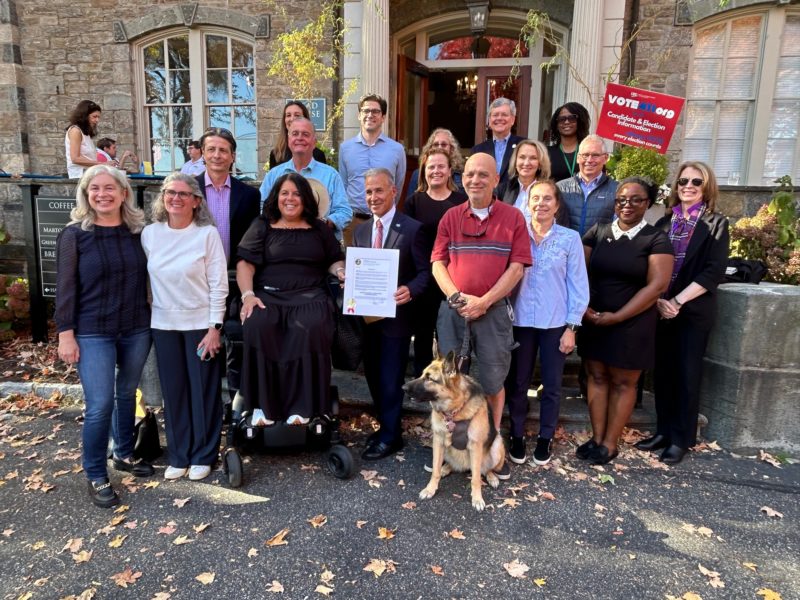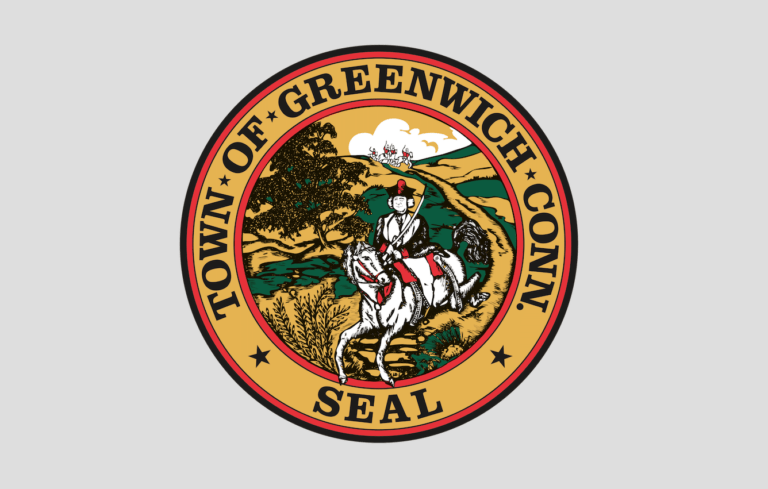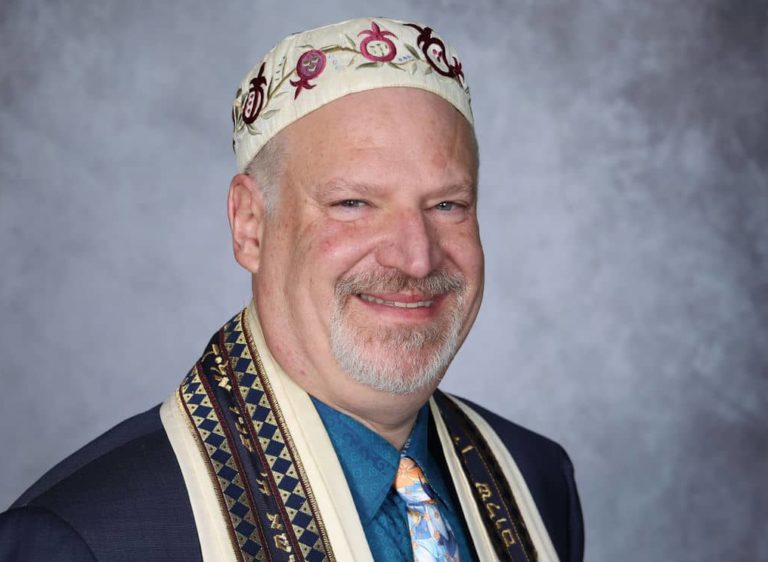
By Anne W. Semmes
On Tuesday, the light shined on the nonprofit Coffee for Good for its efforts begun over three years ago – in June of 2021 – to provide job training to those with developmental disabilities, then help them find work opportunities. To that end Coffee for Good has placed over 25 individuals in employment. With October kicking off National Disability Employment Awareness Month (NDEAM), First Selectman Fred Camillo arrived with a Proclamation honoring Coffee for Good’s efforts, that he read before a gathering of Greenwich leaders and those running for office.
“Whereas the Town of Greenwich is committed to fostering a culture of inclusivity, diversity, and equal opportunity for all its residents, including individuals with disabilities. And whereas October has been designated as National Disability Employment Awareness Month…” and “Whereas the Town of Greenwich values the importance of supporting initiatives that promote employment with disabilities…is proud to partner with organizations such as Coffee for Good, whose mission is to empower people with disabilities through training, employment and skill development in a welcoming environment…”
Following Camillo’s Proclamation reading Alan Gunzburg whose sight impairments have him reaching out across the years to others in need, was able to read from his iPhone to address NDEAM and the efforts of Coffee for Good; “Their work is a testament to the fact that, with the right support and opportunities, everyone has the potential to thrive and succeed in the workplace.”
Speaking with Jon LaBerge, who chairs the Coffee for Good board, he told of the difficulties of kicking off Coffee for Good during Covid. Another challenge was with placing those disabled trainees “especially working with smaller retail operations, they’re very interested in hiring, but they don’t know what changes they need to make in order to support community, what supervision needs to be changed.”
Thus, he introduced nearby a newly hired part time job developer, Jeanne Lockwood. She explained, “I shadow the trainees when they’re getting close to graduation and help assess their strengths, what they want to do, what their goals are, their dreams, just about everything, and make them feel valued and let them know it’s important to me what they want to do… And then I go out into the community and talk to our local retailers, shop owners, big businesses. We have placed them at the Hyatt Regency.” Add the YMCA, with executive director Matt Skaarup present. “He employed a woman named Mary who works as a receptionist.”
On the Coffee for Good terrace was Bibi Clark, whose son Danny Clark had trained at Coffee for Good. “He was placed at the end of his training at the Bruce Museum and his title is Museum Ambassador and he is part of the Protection Team. They protect all the art and the people. His boss Billy Rodriguez was very pro inclusion and saw Danny and immediately said, ‘I want Danny on my team.” She added, “This is all about Coffee for Good. It’s just such a great story.”
Seeing Gunzburg with his service dog, he was asked if he’d had a part in the founding of Coffee for Good. “No, it was Deb Rogan [executive director] and the First Presbyterian Church that came up with the idea.”
But Gunzburg is part of a team helping the trainees. “So, as the individuals come to the point where they get to graduate, we’ll work on their resume, we’ll work on their interview skills, and then we’ll look for a job for them according to what they want to do. Some of our employees here, who work in Coffee for Good say, ‘I want to work in a coffee shop.’ Some don’t want to. So, they work in museums – we have somebody at the Maritime Museum…We put people to work in food service. We have two individuals working for Gregorys Coffee. And we also have somebody working at the cafeteria at the Bruce Museum run by Aux Délices. So, we really want to put them in a job that they want to do.”
Gunzburg addressed also that initial challenge of the founding of Coffee for Good and its financial underpinning. “Planning and Zoning for this location was a little difficult because this wasn’t really zoned for a coffee shop. So, you have to explain to people that it is a 501c3. This is a charitable organization that makes no profit. Even with all that we do, we’d like to break even one day, but we’re not a profit-making business.”




